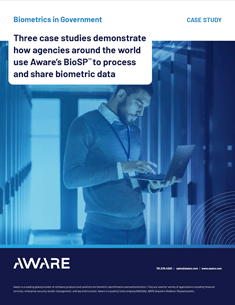The on-going COVID-19 pandemic continues to serve as a huge disruptor for every industry. It forced business leaders and consumers to rethink the status quo and implement strategic tactics in order to conduct business. The lockdown and travel restrictions caused 40 airlines to declare bankruptcy, and many were dependent on government support. As a result, the aviation industry lost an estimated $35 billion at the end of 2020. This caused the industry leaders to strategize, and pivot planned business goals in hopes of meeting their consumers’ new needs.
A 2020 Pwc poll revealed that many consumers wanted to travel again but cited safety and cleanliness as their biggest concern. Additionally, a 2020 360 Market Research study showed that touchless travel technologies that were once viewed as simple conveniences are now considered mandatory tools to help people feel safer when traveling. About 8 out of 10 consumers expect touchless technology to become a permanent part of the travel experience because consumers view it as cleaner and a safer way to travel. Additionally, consumers do not want to pay extra for contactless solutions—they view it as a cost airlines need to take on. These data points illustrate how consumers are demanding touchless solutions in order to return back to flying.
The current state of airports
Many passengers are used to biometrics in their personal lives as facial and/or fingerprint recognition capabilities are available in most mobile devices. Additionally, many passengers are familiar with e-Gates —a self-service barrier that uses data stored in a chip located in your biometric passport to verify your identity and let you cross. These gates are only available in international airports but have been proven to expedite safe and secure travel. Furthermore, many airlines have incorporated the use of preflight apps, texts, payment apps and touch-free machines in order to decrease touchpoints and reduce passengers’ anxiety, thus getting them back in the air. Unfortunately, passengers are still being forced to wait in increasingly long security lines.
The future of airport technology
Biometric technology will continue to see major acceleration in the travel industry. From security check-points to baggage claim, biometric technology is expected to be the driving force in simplifying the way travel is done. This will ultimately improve the passenger experience by virtually eliminating the time one spends in an airport.
Pre-pandemic, U.S based airlines, American, Delta, and United were experimenting with biometric boarding for outbound international flights. American has biometric boarding at four airports and is currently testing facial recognition technology for entry. United offers biometric technology at four airports and a spokeswoman for the company stated that “more than 250 international outbound flights a week are boarded biometrically.” Lastly, Delta allows international fliers to use their face as a boarding pass at eight airports. All companies are planning to expand, noting that biometric boarding is optional and anyone wishing to board manually is invited to do so.
In November 2021, Delta announced that it had launched a new digital identity program for T.S.A PreCheck members at Hartsfield-Jackson Atlanta International Airport. Members can opt in to use facial recognition to check-in their bags, clear airport security and even board their domestic flight. Even though this program is for domestic flights only, passengers will be required to enter their U.S passport number, which provides the back-end check on their identity using the passport photo.
Airports are expected to see 78% increase of biometric powered self-boarding gates by 2030. A new report by market research provider Valour Consultancy has predicted that the total number of biometrically enabled passenger touchpoints in airports globally will rise to almost 51,000 by 2030 – up from 12,079 at the end of 2020. Airports globally will begin implementing biometric face scans to check-in kiosks, self-bag drop machines and other e-gates moving forward. Additionally, airports are expected to see a sharp decrease in wait-times. Tomorrow’s passenger will no longer have to worry about stress-inducing ques and long wait times. Facial recognition will allow for seamless passage between concourses.
Enhancing passenger experience with biometrics
From banking to retail, biometric technology continues to disrupt industries while simultaneously improving user experience and increasing security. The ongoing COVID-19 pandemic calls for touchless solutions in order to mitigate infection rates. Additionally, consumers are demanding enterprises prioritize the health and safety of their customers. This put biometric technology at the forefront of every business leader’s mind. Once deemed as futuristic and technology of convenience, biometric technology has grown to be the gold standard for health, safety, and security. Airports and airlines will continue to see a sharp increase in biometric technology in the next decade.
As biometrics look to shape the future of airports, many leaders are looking for the best solutions to offer their customers. Aware has ready-to-go solutions that meet your needs at a small and large scale. Aware provides software and solutions for government-sponsored, biometrics-enabled citizen identification and credentialing systems. Our innovative biometric solutions provide critical support to help ensure national security and protect citizen freedoms and liberties. Additionally, we have solutions that help airlines ensure secure mobile authentication for passengers. Our mobile biometric solution utilizes face and voice recognition to enable secure and convenient multifactor authentication without passwords.
